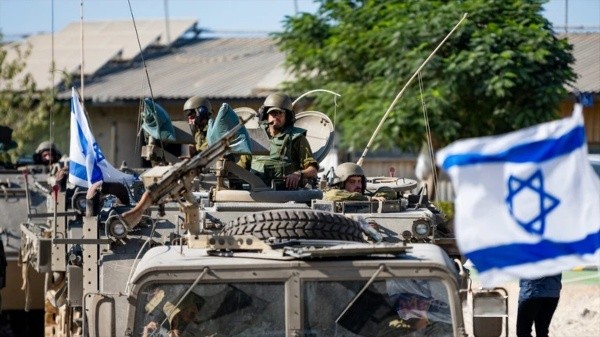Iran’s Plan to Strike Back Against the U.S.
Iran’s Military Preparations Following U.S. Attacks
Loading...

President Biden has vowed to back West Jerusalem amid concerns of Iranian retaliation over the killing of a Hamas political chief
The United States has pledged to provide additional military support to Israel in the wake of escalating tensions following the assassination of Hamas political chief Ismail Haniyeh in Tehran. President Joe Biden's commitment to bolster Israel's defense capabilities has underscored concerns about potential Iranian retaliation and the risk of wider regional conflict.
US-Israeli Discussions and Military Deployments
President Joe Biden and Israeli Prime Minister Benjamin Netanyahu discussed the deployment of new US military assets to assist Israel in defending against all threats during a call on Thursday. The discussions focused on efforts to support Israel's defense, particularly against ballistic missiles and drones, with the inclusion of new defensive US military deployments. The call highlighted the US's commitment to bolstering Israel's security against potential threats from Iran and its proxy terrorist groups, including Hamas, Hezbollah, and the Houthis.
Iranian Retaliation and Regional Concerns
The Biden administration has expressed concerns about potential Iranian retaliation in the aftermath of Haniyeh's assassination, with reports indicating that Iran is preparing to counter perceived threats. The anticipation of Iranian retaliation has raised fears of a larger-scale conflict, with concerns that the Middle East could be plunged into all-out war. US officials expect Iranian retaliation to be similar to previous incidents, potentially involving a larger scope and the participation of Hezbollah.
Israeli Military Actions and Regional Dynamics
Recent actions by the Israeli military, including the claimed elimination of a senior Hezbollah commander in Beirut, have further heightened tensions in the region. Hezbollah leader Hassan Nasrallah has hinted at the militant group's readiness to strike against Israel, signaling a potential escalation across multiple fronts. The evolving regional dynamics and the potential for a broader conflict have prompted concerns about the stability and security of the region.
International Reactions and Diplomatic Efforts
The assassination of Haniyeh and the subsequent discussions between the US and Israel have drawn attention from international actors, with Russia strongly condemning the actions and warning of further destabilization in the region. The situation has underscored the delicate balance of power and the need for diplomatic efforts to prevent further escalation and maintain regional stability.
Economic and Market Impact
The news of potential military deployments and the heightened tensions have had initial impacts on the markets, with fluctuations in the stock market and the national currency. The potential for wider conflict and the economic implications have raised uncertainties about the future stability of the region.
Conclusion
The US's pledge to provide new military deployments to support Israel amid rising tensions has underscored concerns about potential Iranian retaliation and the risk of wider regional conflict. The evolving dynamics in the Middle East and the potential for broader repercussions have prompted discussions about the need to prevent further escalation and maintain stability in the region.
Editor
Iran’s Military Preparations Following U.S. Attacks
Troops remain in five strategic locations, raising fears of renewed tensions and long-term occupation.
Opposition forces have taken control of the capital after a significant offensive. Here is how it unravelled.
